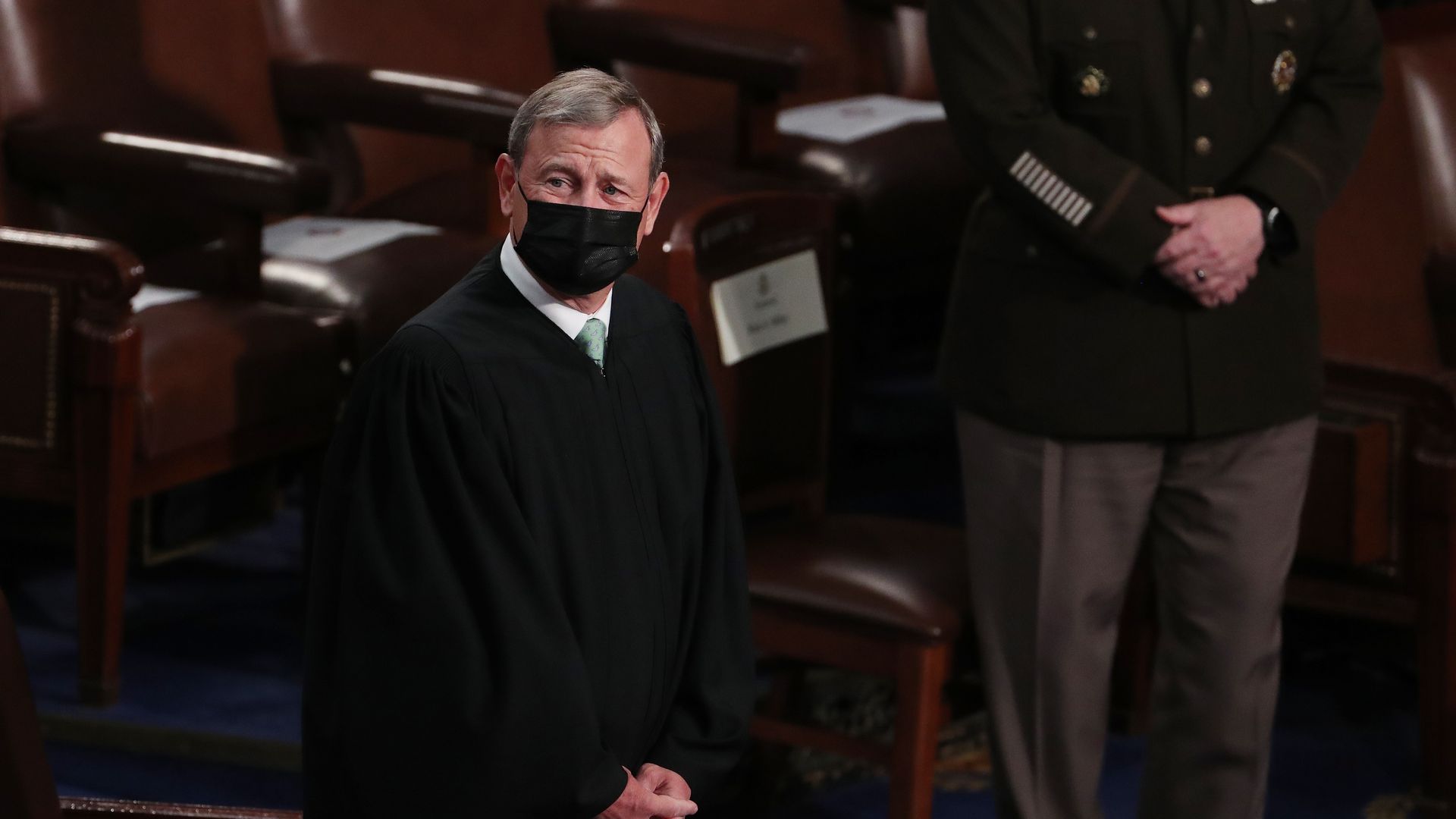Feb 7, 2022 - Politics & Policy
Supreme Court lets stand GOP-drawn Alabama congressional map
Add Axios as your preferred source to
see more of our stories on Google.

Chief Justice John Roberts arrives before a joint session of Congress on April 28, 2021. Photo: Michael Reynolds/EPA/Bloomberg via Getty Images
